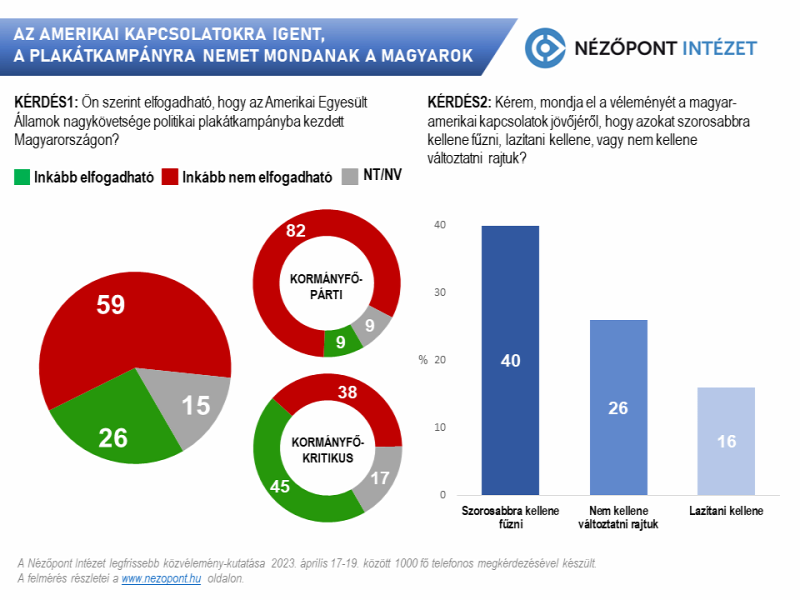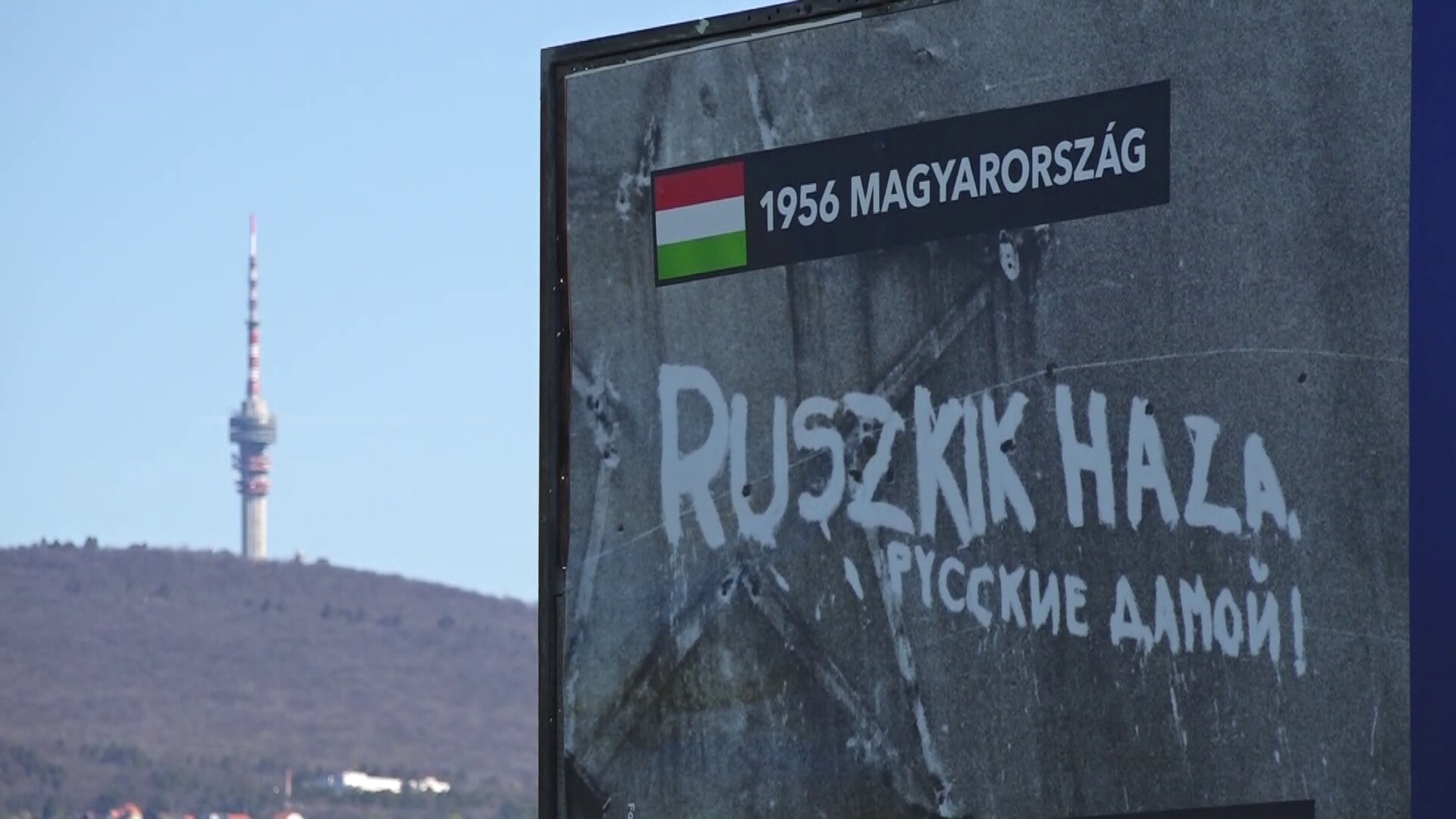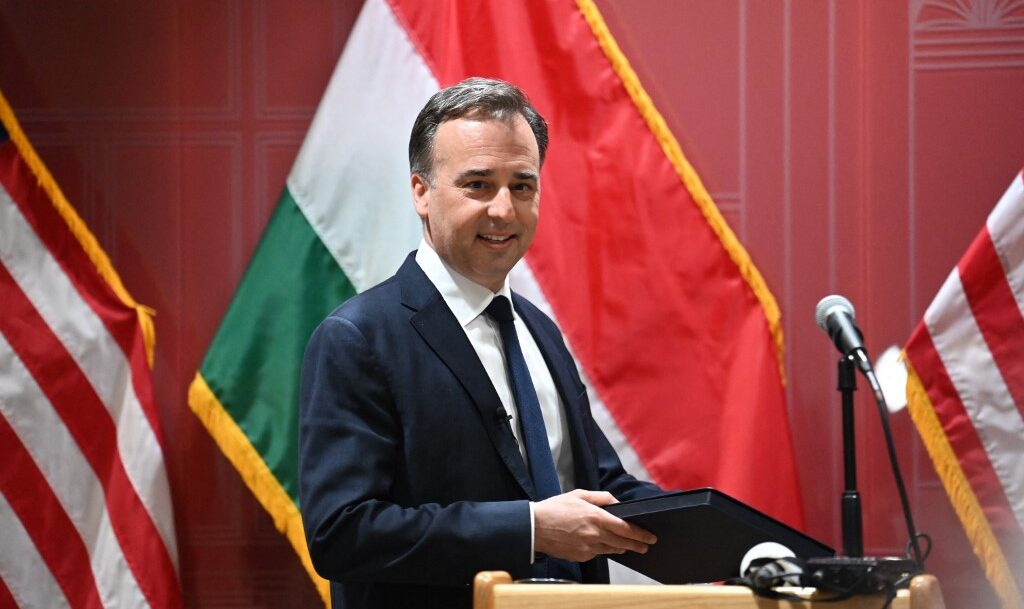40 percent of Hungarians would make Hungarian-American relations closer, and 26 percent would keep them at the same level. However, this does not mean agreement with the Biden administration, which is supported by the fact that the majority (59 percent) do not consider the poster campaign of the US embassy to be acceptable. According to more than a third of the opposition (38 percent), Washington's action in Hungary is unacceptable, according to the latest research of the Nézőpont Institute.
In recent weeks, the Embassy of the United States of America in Budapest has taken several steps that can be evaluated as an unfriendly gesture towards the pro-peace position of the Hungarian government. First, a list of sanctions involving Hungary was announced at a press conference in Budapest, and then a pro-war poster campaign was launched in many parts of the country.
In the current war situation, a particularly important question is what Hungarians think of our country's biggest Western ally, and how they judge its poster campaign.26 percent of Hungarian voters are satisfied with the current level of Hungarian-American relations, and 40 percent would like them to be even closer, and only 16 percent of Hungarians believe that it should be relaxed. Both those who support the prime minister (62 percent) and those who criticize the prime minister (73 percent) are in the majority who would see Hungarian-American relations at the current level or in a closer form as ideal. Every third of those who sympathize with the Hungarian prime minister (33 percent), and every second of the critics (50 percent) would rather deepen Hungarian-American relations. Those who support the government and those who criticize the government are almost equally satisfied with the current situation (29 and 23 percent), and the minority position in both groups is to move away from America: 18 percent of those who support the government and 8 percent of the opposition think that relations should be downgraded. Overall, it can be stated that the majority of Hungarian voters support Hungarian-American relations.

Source: Point of View Institute
Although a large proportion of Hungarians would maintain or improve the current relationship between Hungary and the USA, the American embassy's political poster campaign has the opposite effect. This is supported by the fact that
THE MAJORITY OF HUNGARIANS (59 PERCENT) DO NOT CONSIDER THE ACTION OF THE UNITED STATES TO BE ACCEPTABLE AND ONLY EVERY FOURTH OF VOTERS (26 PERCENT) STATED THAT THEY THINK IT IS RATHER ACCEPTABLE.

Source: News
Even the group of those who hope for closer relations are divided on the issue: in the same proportion, 43-43 percent of them consider the poster campaign acceptable and unacceptable. Among those who would rather maintain the current level of Hungarian-American relations, there are two-thirds majority (68 percent) of those who disapprove of the embassy's action, compared to those who accept it (25 percent). The poster campaign also strengthened the skeptical opinion of those who would rather relax relations with the United States, as 88 percent consider the political action unacceptable, and only 8 percent consider it acceptable.
Those who sympathize with the prime minister are more united on the issue: more than four-fifths (82 percent) of them think the poster campaign of the embassy is unacceptable, and only one in ten thinks it is acceptable. The opposition is divided on the issue, less than half of them (45 percent) sympathize with the poster campaign, but more than a third (38 percent) have a critical opinion of it. All in all, it can be stated that the political activism of the American embassy could not fully convince even the anti-government voters.
Featured image: AFP













